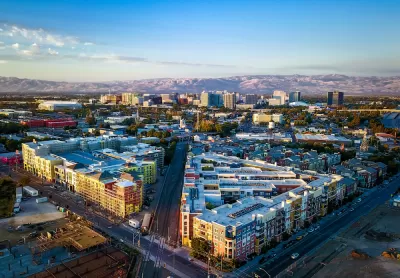Only a fraction of cities interested in using generative artificial intelligence to enhance how they operate have made moves to adopt to the technology. What are the obstacles to adoption and what can be learned from local governments who’ve already taken the leap?

Sara Al Hudaithy and Anu Devi for the World Economic Forum have pulled together an excellent article on the use of generative artificial intelligence by local governments worldwide, which they describe as being in the “exploratory phase” as many formulate policies to regulate its use. They cite a 2023 Bloomberg Philanthropies survey of 100 mayors and city staff worldwide in which 69 percent said they were either currently exploring or testing GenAI capabilities. “These city officials are particularly interested in understanding how GenAI can help enhance citizen engagement, advance data-driven policy-making, optimize services and resource allocation, and streamline administrative processes and communication. In addition, they are interested in determining how GenAI can enhance city services and efficiency, especially in areas such as traffic and transportation, infrastructure, public safety, environmental issues, education and administrative tasks.” However, only 2 percent have actively adopted the technology.
The rest of the article explores the activities of that 2 percent, including links to AI policies and guidelines of cities like Seattle, San Jose, Boston, New York, Amsterdam, Helsinki, as well as the potential of GenAI once cities exploration and adoption grows beyond its current “infancy” stage and cities are able to identify where it can make the most difference and overcome various obstacles. “The potential of combining unbiased and large datasets with machine learning and other technological capabilities can bring significant benefits to society, governments and businesses. However, this potential can only be realized when risks and unintended consequences, both short- and long-term, are accounted for and addressed through governance frameworks designed to minimize harm. Additionally, finding cost-effective and practical use cases and learnings for cities is essential for successful adoption,” Al Hudaithy and Devi write.
FULL STORY: Cities are sizing up the generative AI skyline. But first, they have to establish the ground rules

Planetizen Federal Action Tracker
A weekly monitor of how Trump’s orders and actions are impacting planners and planning in America.

Map: Where Senate Republicans Want to Sell Your Public Lands
For public land advocates, the Senate Republicans’ proposal to sell millions of acres of public land in the West is “the biggest fight of their careers.”

Restaurant Patios Were a Pandemic Win — Why Were They so Hard to Keep?
Social distancing requirements and changes in travel patterns prompted cities to pilot new uses for street and sidewalk space. Then it got complicated.

Platform Pilsner: Vancouver Transit Agency Releases... a Beer?
TransLink will receive a portion of every sale of the four-pack.

Toronto Weighs Cheaper Transit, Parking Hikes for Major Events
Special event rates would take effect during large festivals, sports games and concerts to ‘discourage driving, manage congestion and free up space for transit.”

Berlin to Consider Car-Free Zone Larger Than Manhattan
The area bound by the 22-mile Ringbahn would still allow 12 uses of a private automobile per year per person, and several other exemptions.
Urban Design for Planners 1: Software Tools
This six-course series explores essential urban design concepts using open source software and equips planners with the tools they need to participate fully in the urban design process.
Planning for Universal Design
Learn the tools for implementing Universal Design in planning regulations.
Heyer Gruel & Associates PA
JM Goldson LLC
Custer County Colorado
City of Camden Redevelopment Agency
City of Astoria
Transportation Research & Education Center (TREC) at Portland State University
Camden Redevelopment Agency
City of Claremont
Municipality of Princeton (NJ)





























